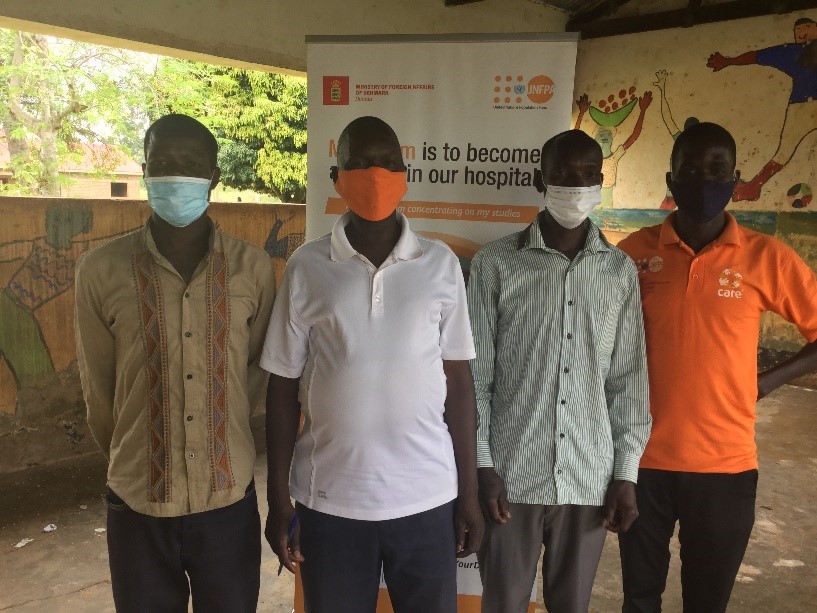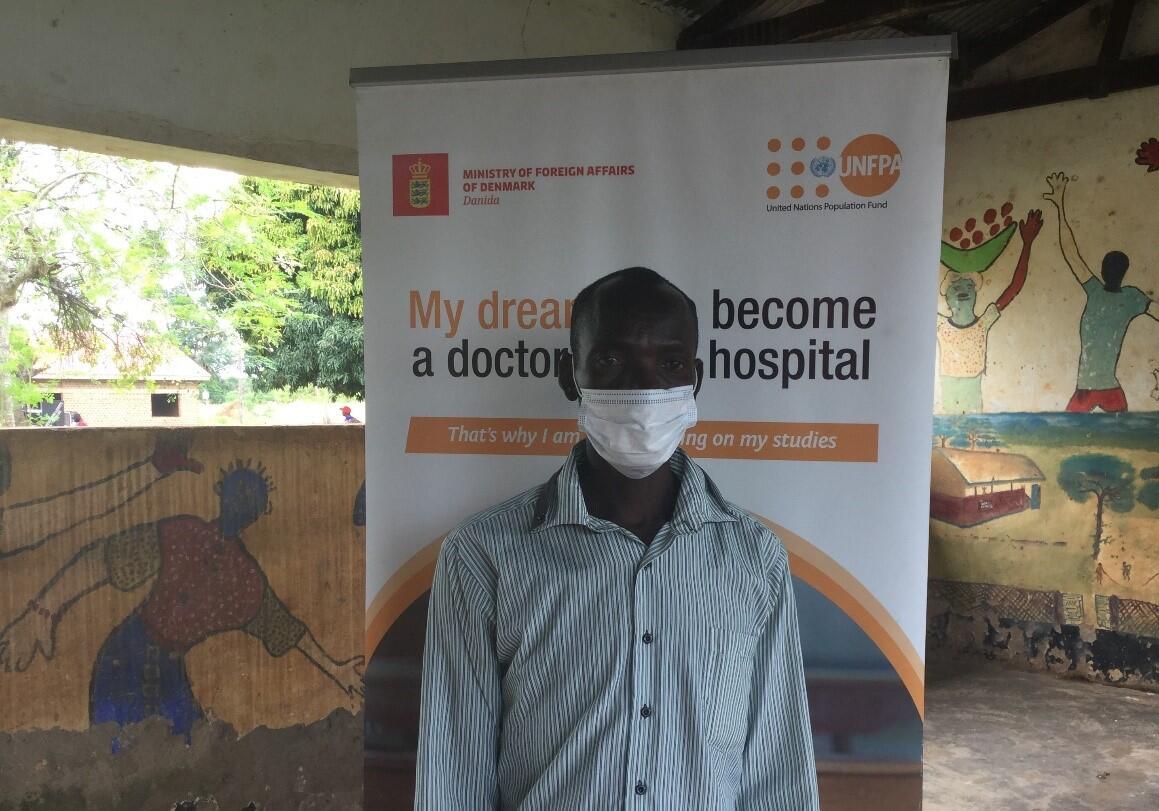LABONGO AMIDA, KITGUM – Male involvement in Family Planning is very instrumental in addressing the unmet need for Family Planning. Under the WAY programme, UNFPA supports CARE to increase demand for Gender-Based Violence and Sexual and Reproductive Health Services (SRHR) including Family Planning.
Mr. Francis Oyat, 38 years old and Alfred Ocen, 31 years old are members of the Role Model Men who make up the Male Action Group from Labongo Amida sub-county in Kitgum district.
As part of the post-training support activities, each Role Model Man was attached to ten households where they conduct regular couple and household information sessions on GBV prevention and SRHR including Family Planning. Mr. Ocen is challenging harmful beliefs and practices against women and girls such as wife battering and forced marriages in his community in Lamola Parish, Kitgum district. In this sub county, there are 15 Role Model Men.
According to him, he holds GBV and family planning sessions with both men and the households where he was attached to work in. He identified, counseled, and referred four households for family planning services to the health facility. In one of these households, Mr. Ocen notes that the couple had a varied understanding of the benefits of family planning, where the wife wanted to have more children, whilst the partner did not heed to this demand. The role model man linked the household for further guidance and support from the health worker.
Similarly, Mr. Oyat is championing promising family planning practices in his community. According to Mr. Oyat, one of the most striking take away from a UNFPA supported training of the Male Action Groups on Engaging Men and Boys was the topic on Family Planning. He reveals that it took him two weeks to negotiate with his partner on why they should decide to obtain family planning services from the health facility.

Sub County under the WAY programme. Credit: Cinderella Anena/UNFPA
“At first, she had fears about the side effects of FP. Together, we went to seek counseling from a health worker, we received the necessary support which enabled us jointly make an informed decision on the right FP method which suits us…,” Mr. Oyat said.
“In one of the ten households where I am attached to, I witnessed how difficult life has been for the family, they have 6 children who were born with almost no child spacing. I held information sessions on FP with this family. I always wait on them when they are back from farming, then I speak with them…”, he said.
Men are not only clients and beneficiaries in Family Planning issues but they are also agents of change in challenging regressive social norms, attitudes, and behaviors towards women and girls. The MAGs are championing the involvement of men in family planning conversations at both households and community levels. Importantly, the MAGs are increasingly advancing reflections on positive gender norms and practices which promote peaceful co-existence and positive health outcomes in their communities.
"As a role model man, I lead by example…. I am aware of the benefits of Family Planning and my role as a male partner, my wife and I decided to take on a short term method of family planning...," Ocen explains.
"Together with my wife, we took all our children to school, we have a plan to complete our new house and lead in a better housing facility. This is not possible if we get many children, whom we cannot take care of…," he says.
Alfred further asserts that to increase men’s knowledge on family planning, there is a need to engage a wide range of stakeholders including cultural and religious leaders and most importantly, the male partners as users of family planning services.
Story by Cinderella Anena


